33 Antihypertensives
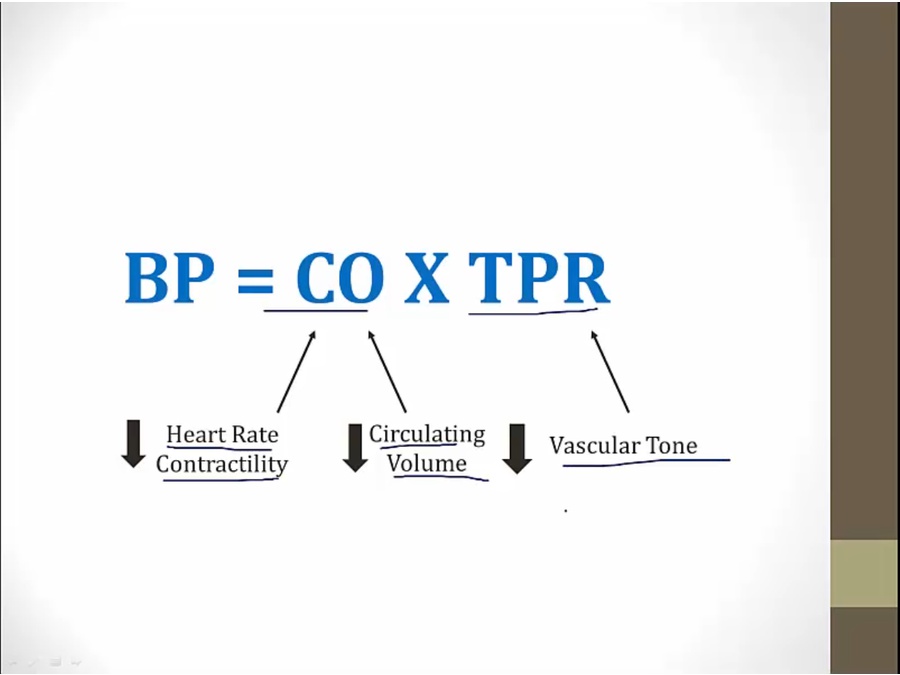
- antihypertensives work by either decreasing CO or decrease TPR
Beta Blockers
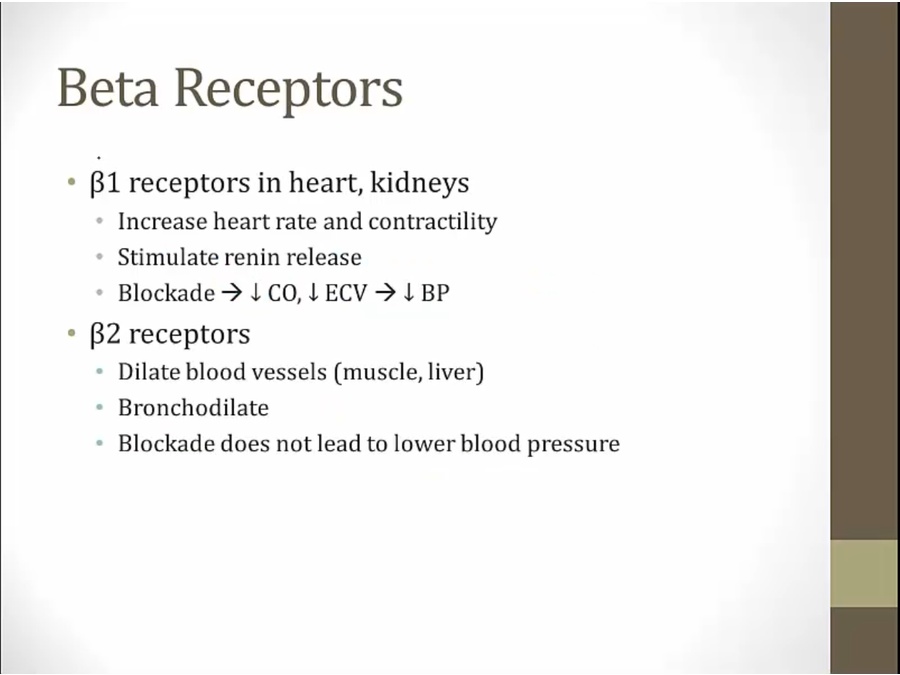
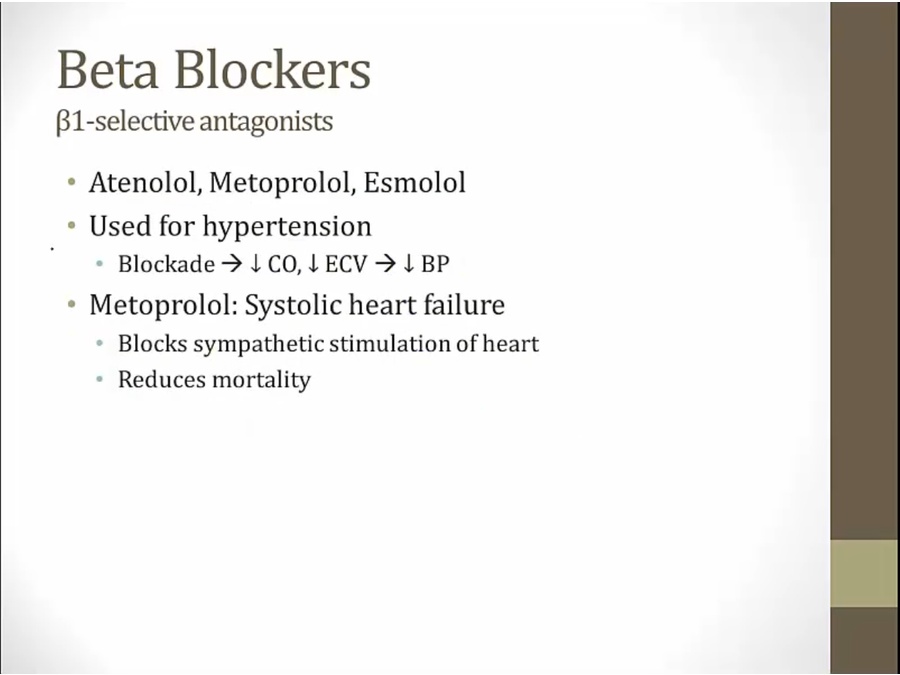
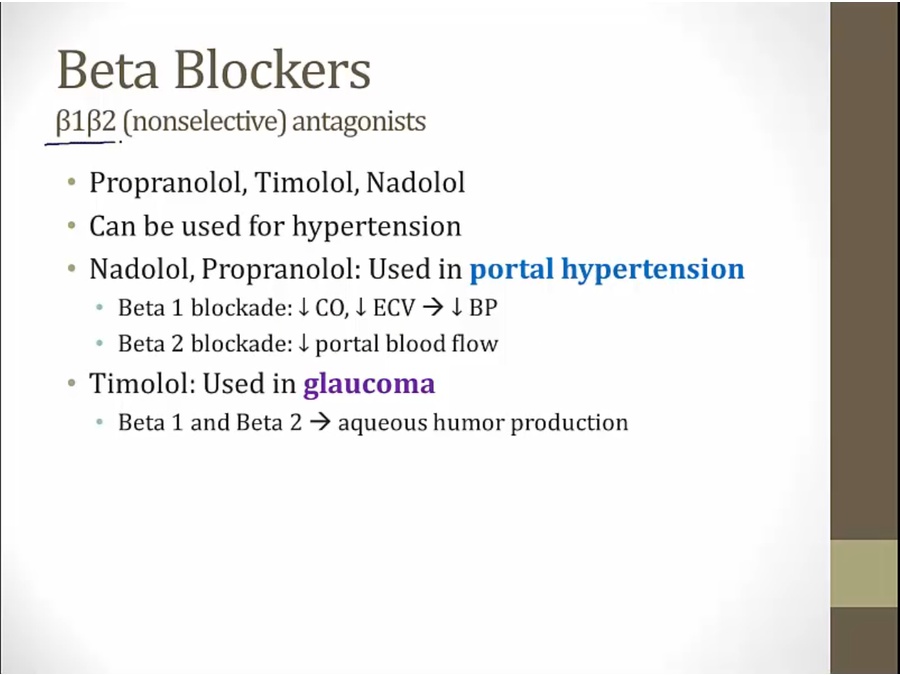
- not really used for hypertension
- b1 blockade: general lower BP, including portal system
- b2 increase flow to liver, block to decrease flow
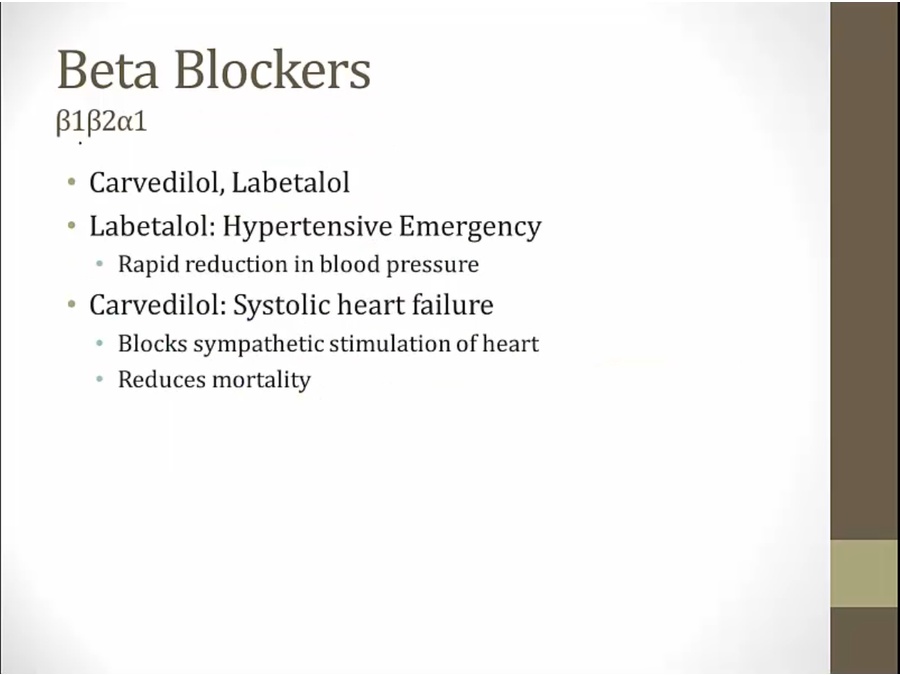
- carvedilol: clinical trial shows benefit, not because of special receptor
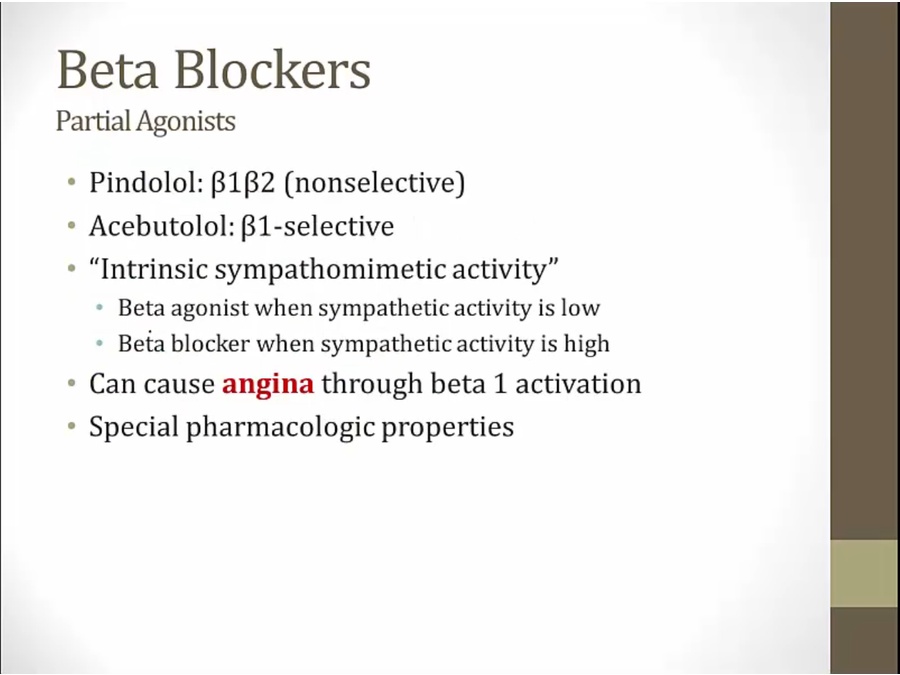
- at low sympathetic level, higher activation of beta receptor than sympathetic activity, thus agonist
- high level, lower activation of beta receptor than sympathetic, thus blocker
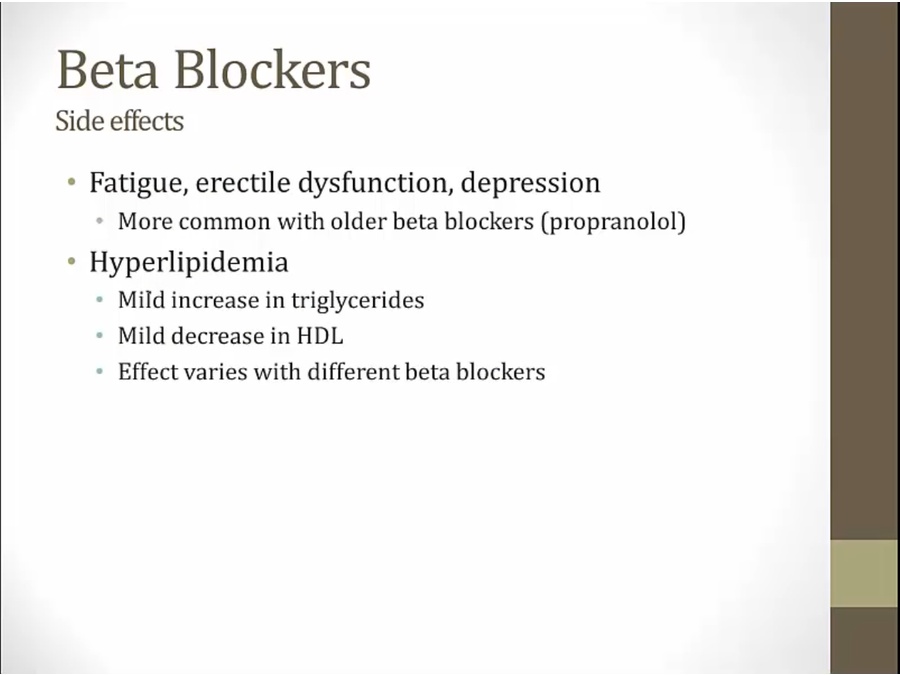
- fatigue, etc: blunt CNS activity
- hyperlipidemia not clinically relevant
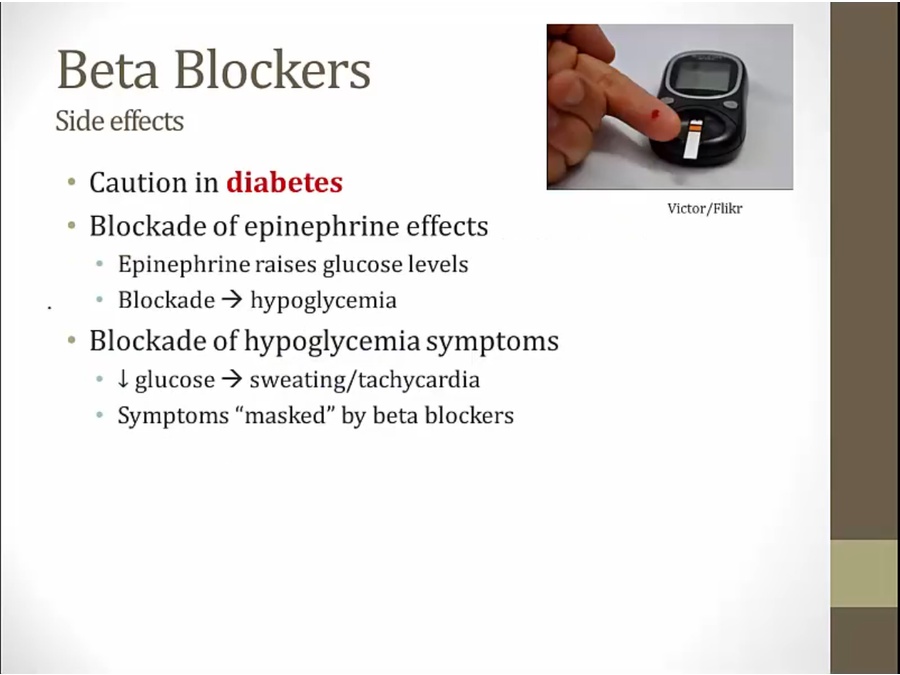
- given because many benefits
- diabetics often hypoglycemic because taking insulin
- BB cause hypoglycemia and masks symptoms, except sweating (Ach receptors)
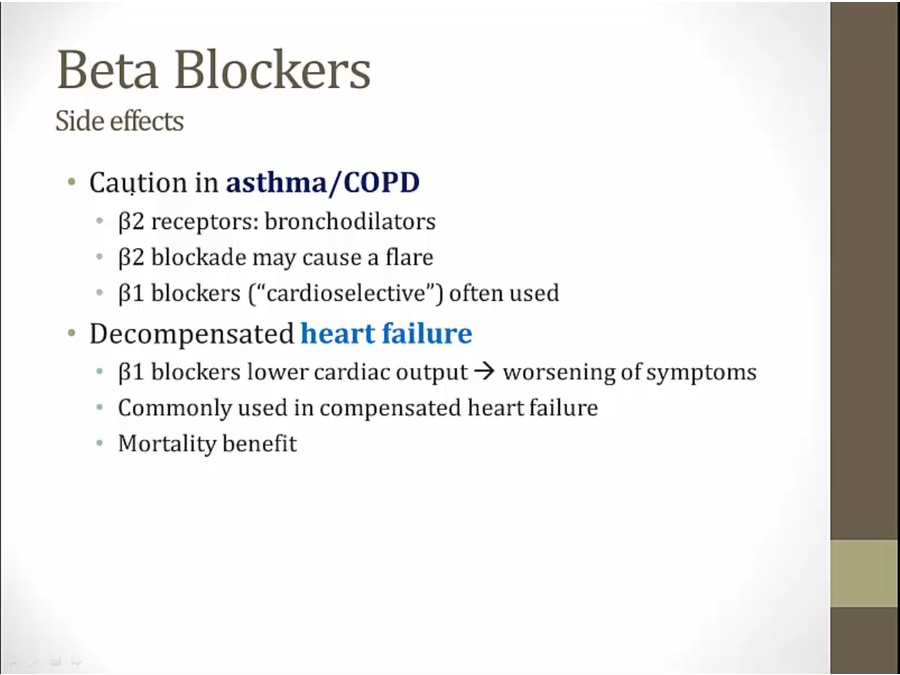
- decompensated
- acute HF: pt with pulmonary edema/sick from HF can get very sick with BB's lowering of CO
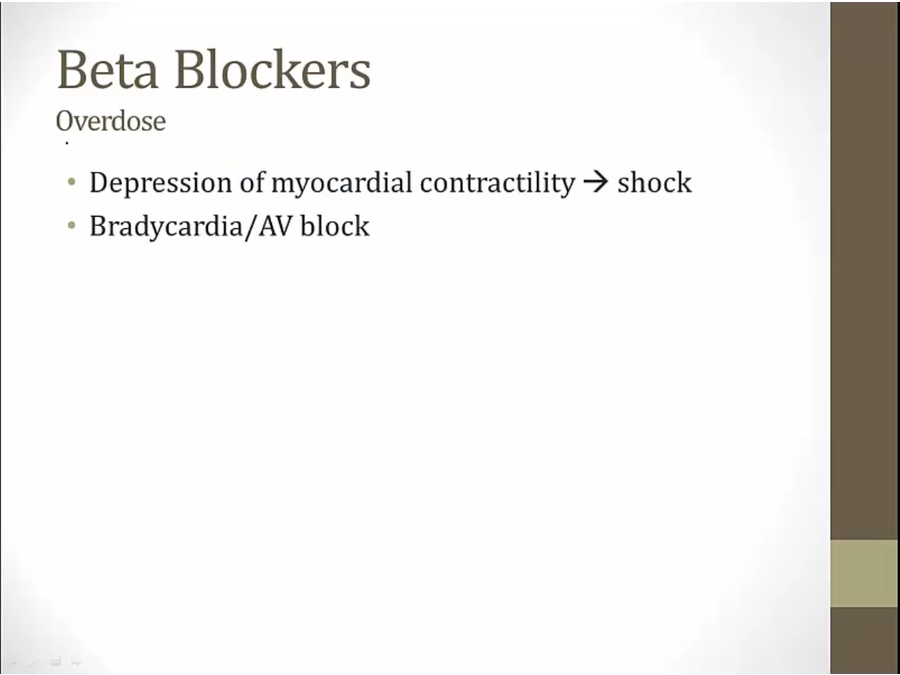
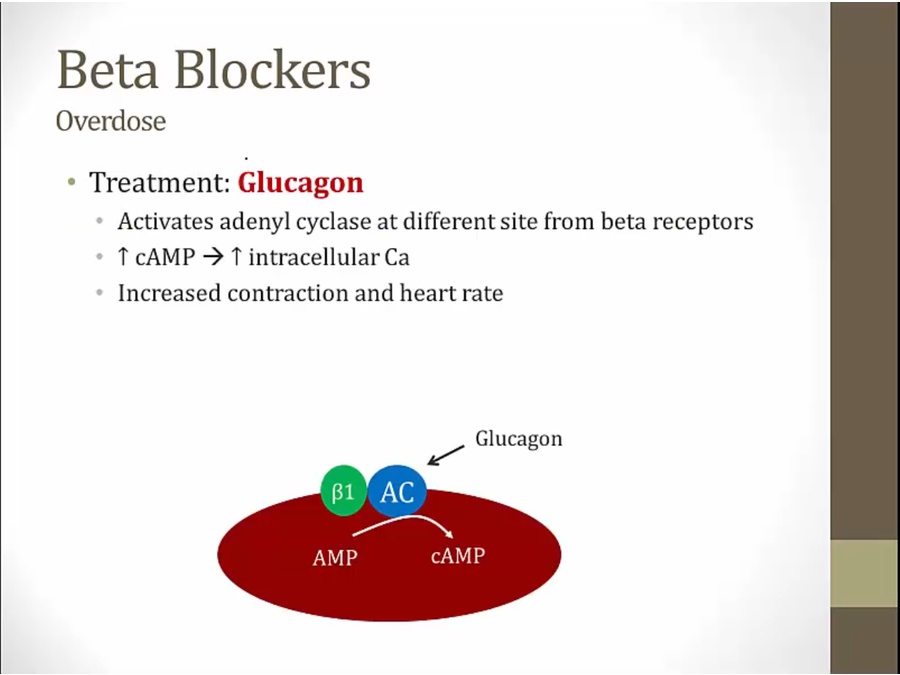
- stimulates myocardiocytes at different site
- stimulate heart and bypass beta receptors
Alpha Drugs
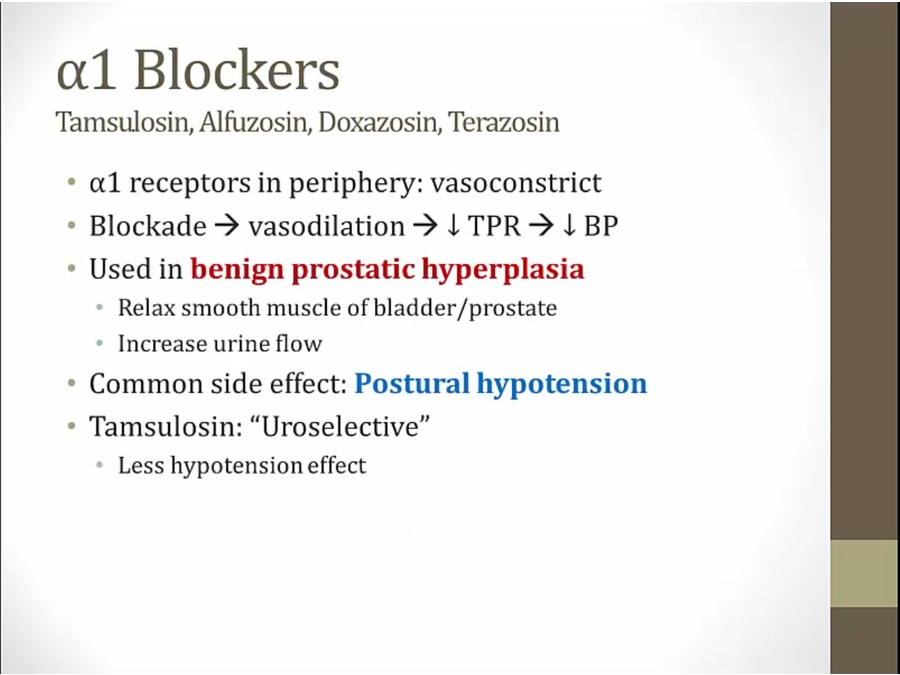
- tamsulosin very good for BPH
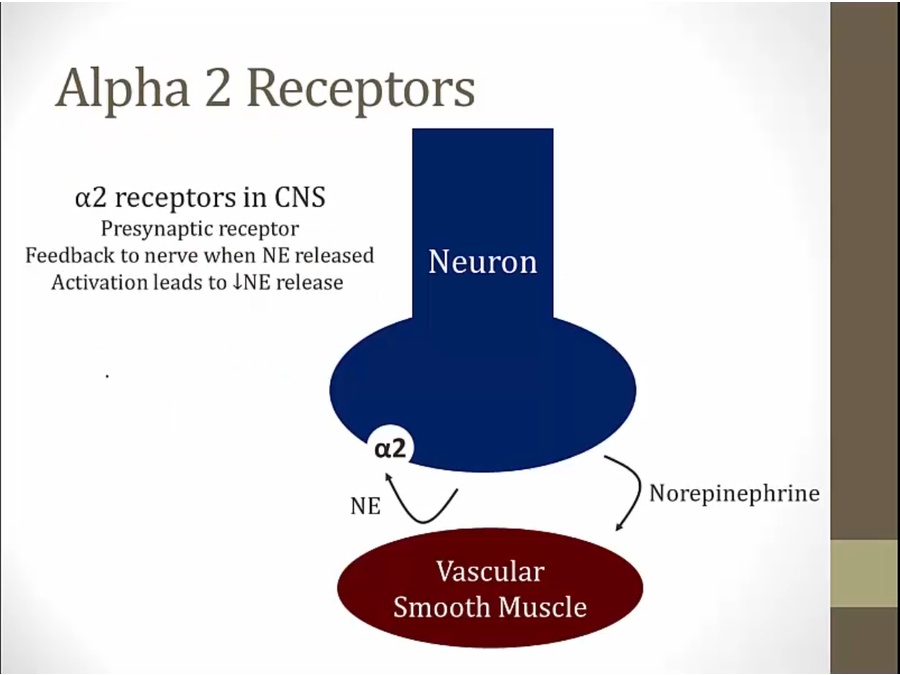
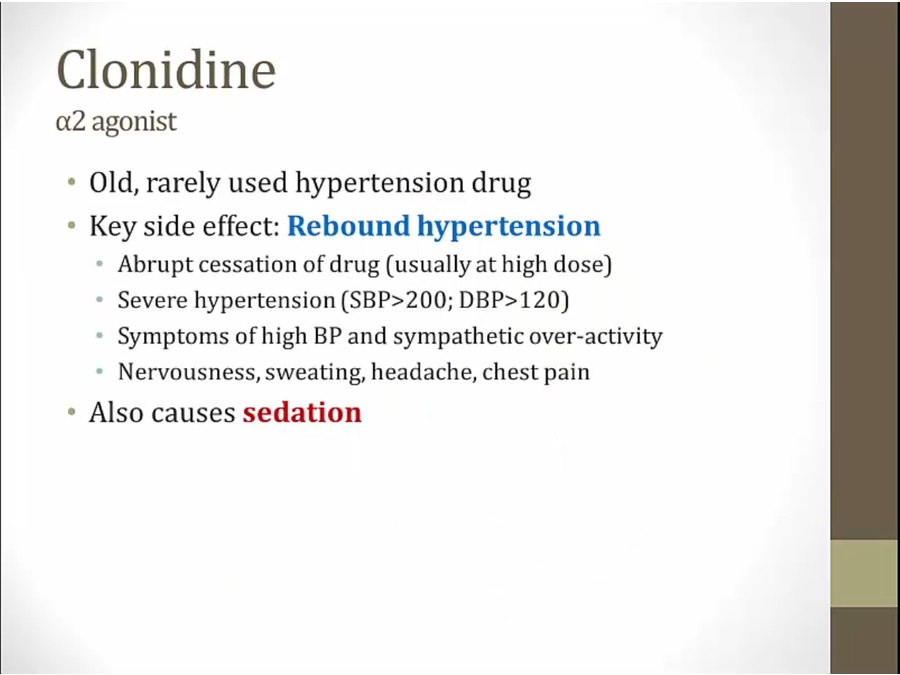
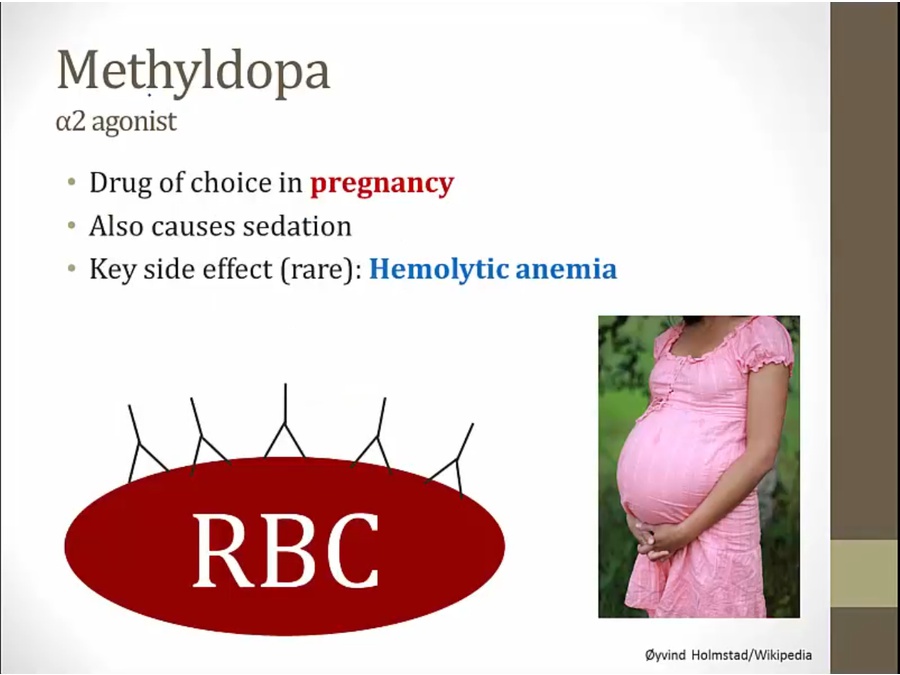
- warm autoimmune hemolytic anemia
CCB
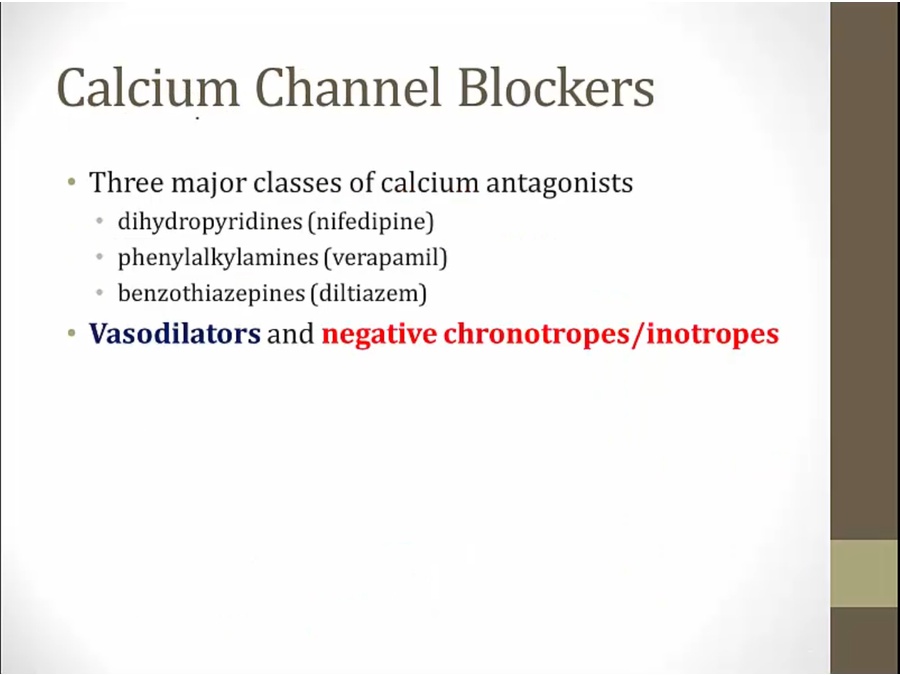
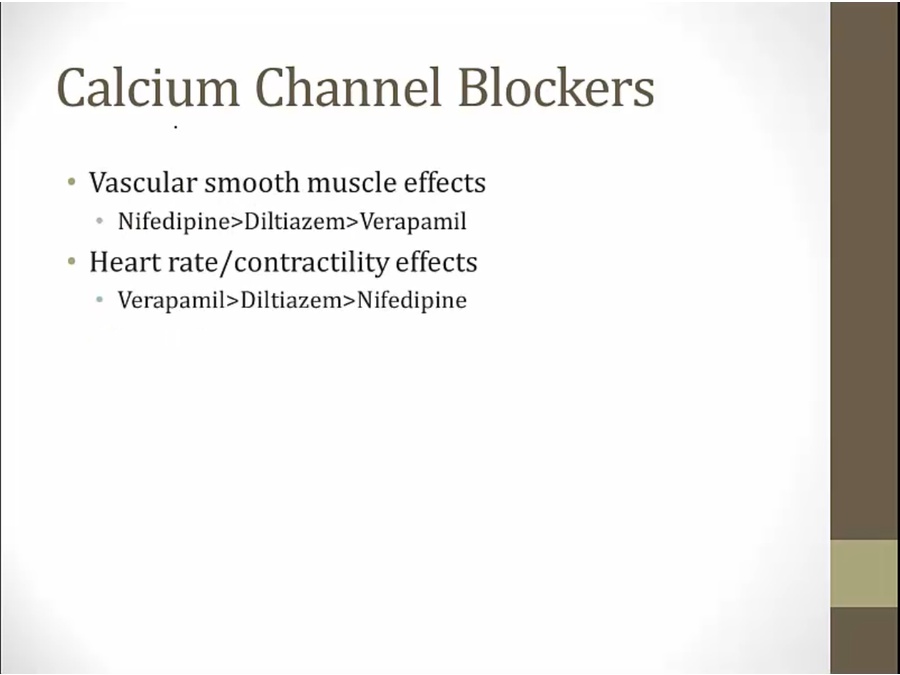
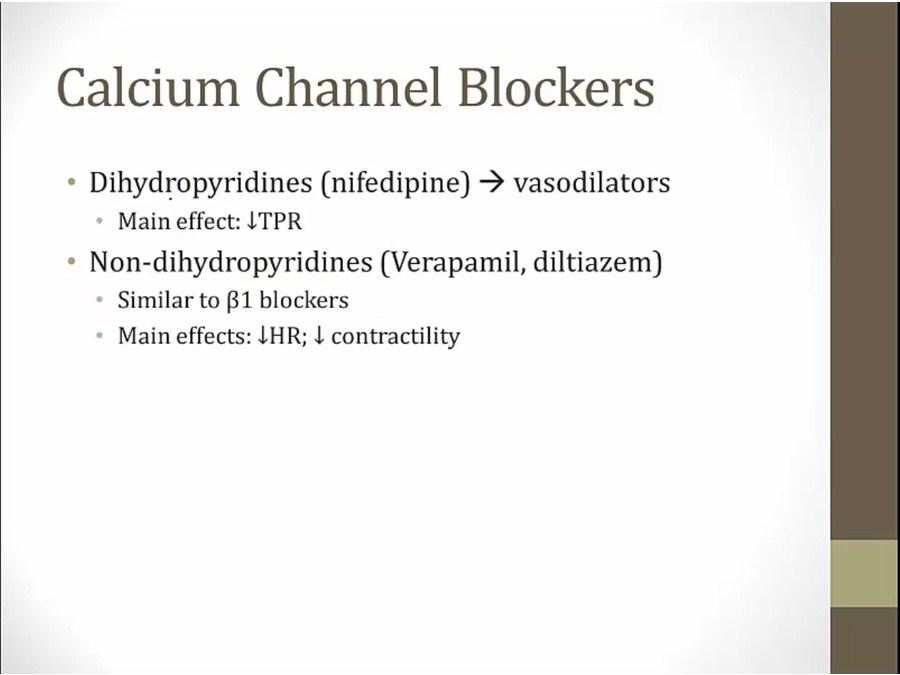
Dihydropyridines
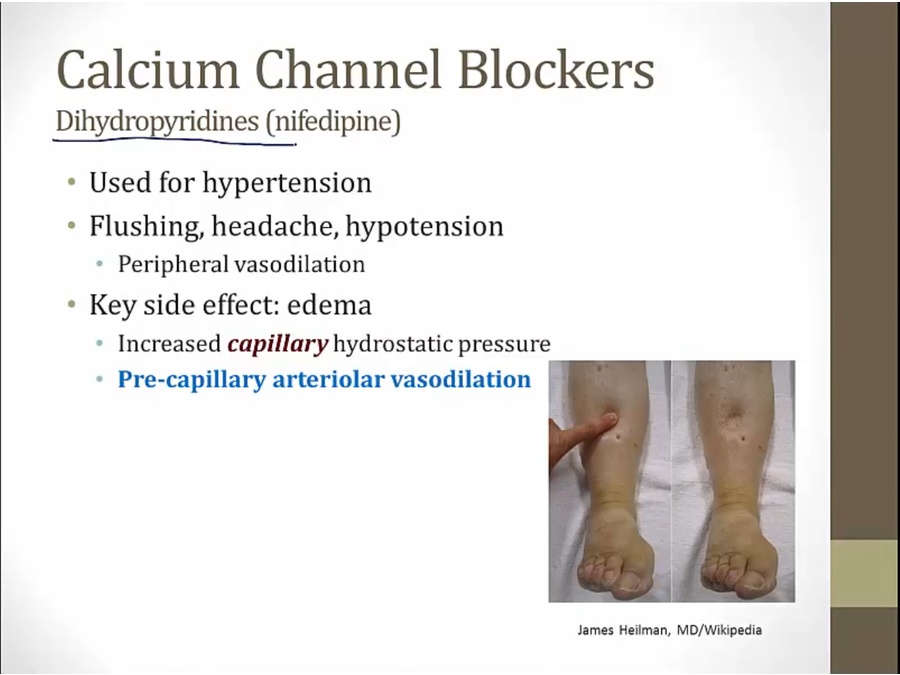
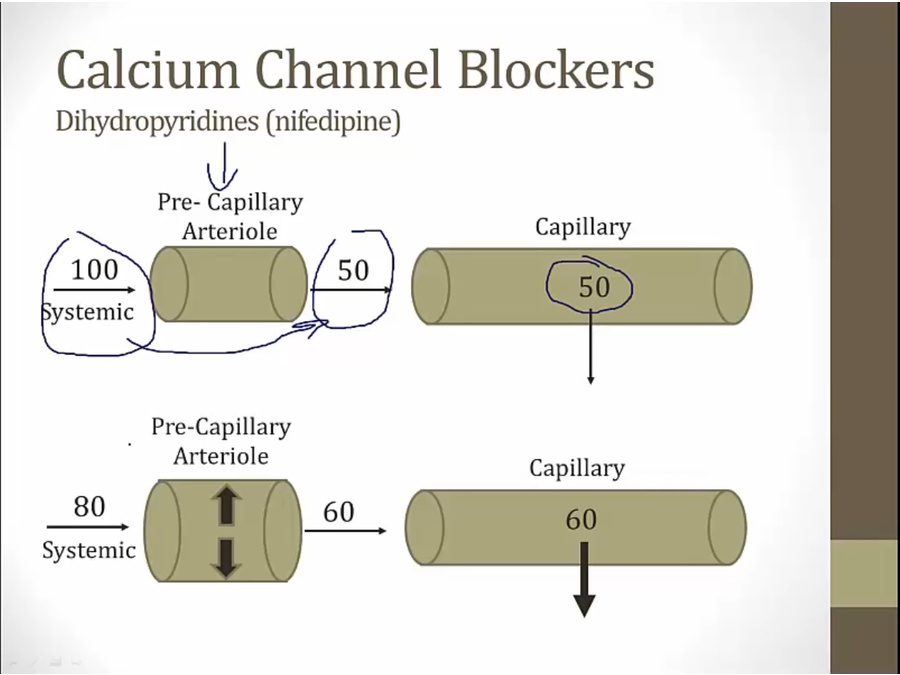
- pt not taking CCB: arteriole constrict, leading to lower hydrostatic pressure in capillaries
- CCB: dilate arteriole, higher hydrostatic pressure
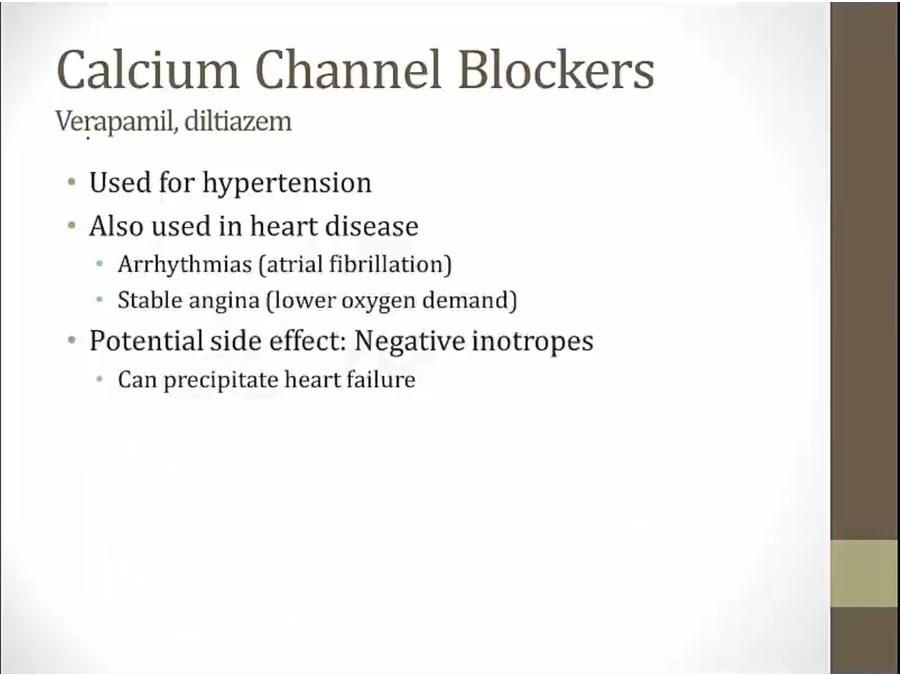
- like b1, slow HR, decrease contractility
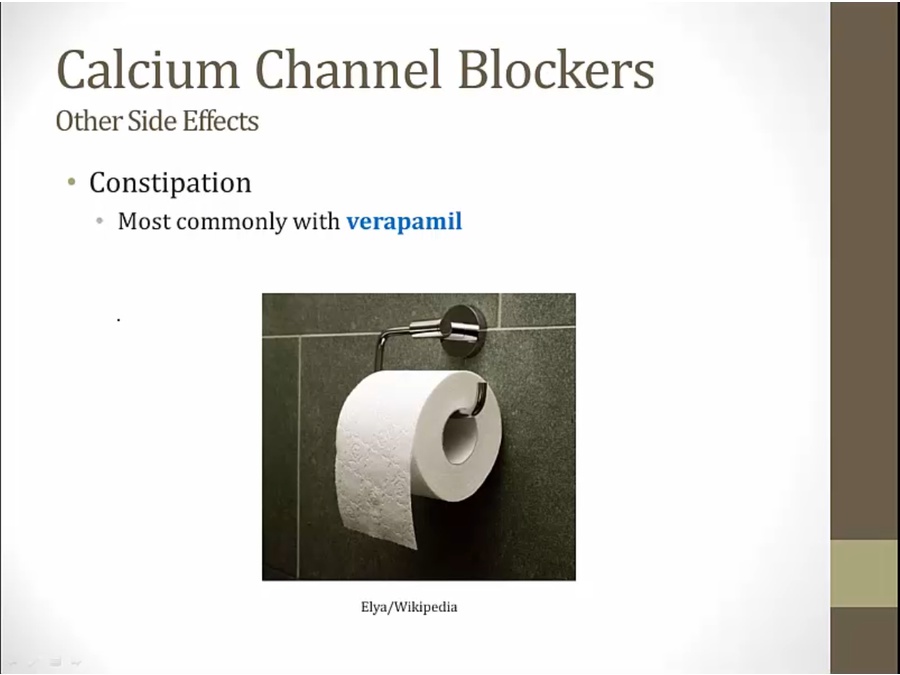
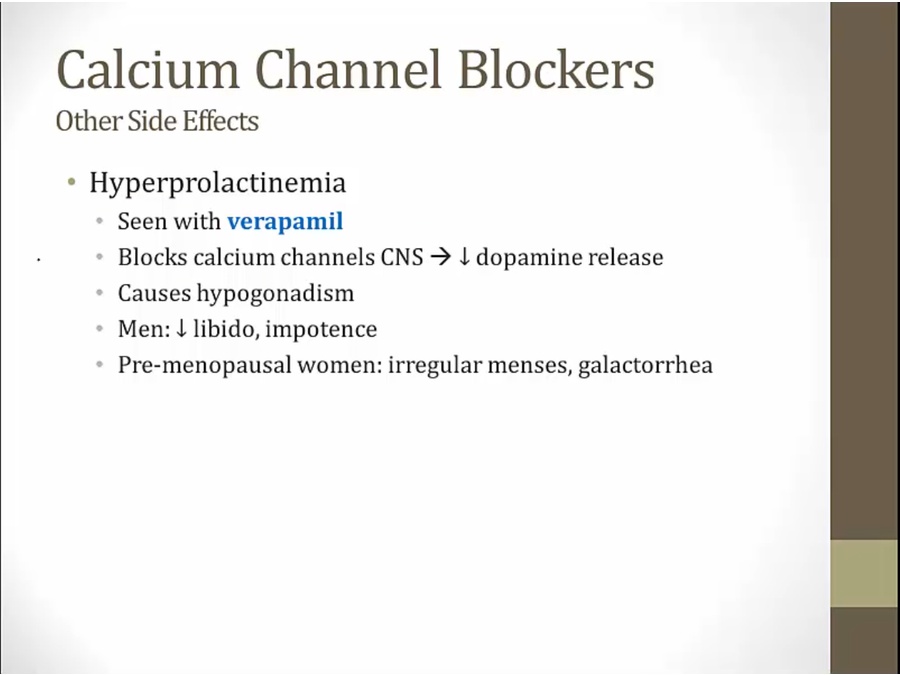
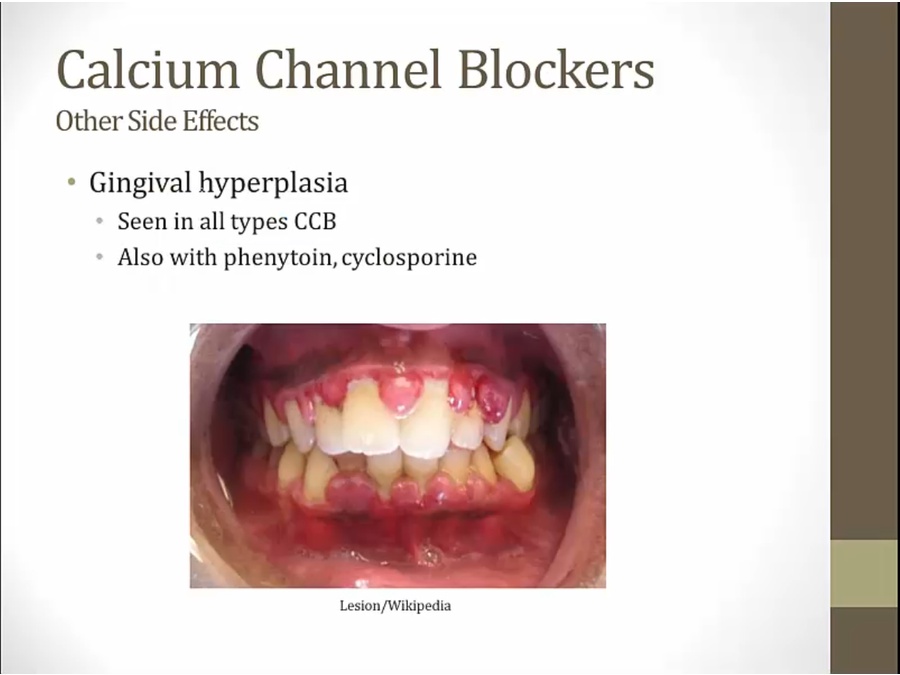
AII
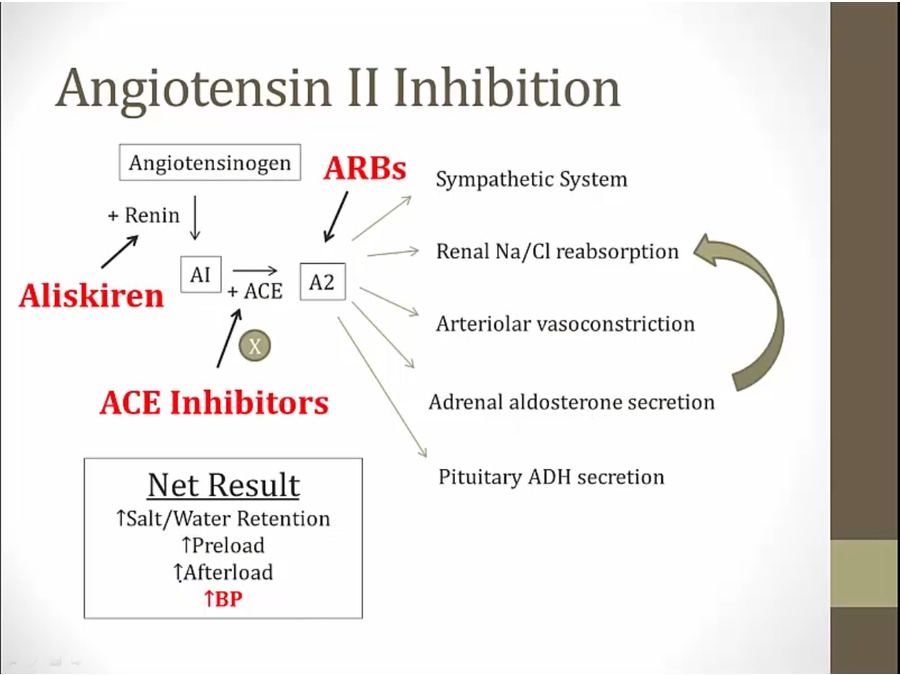
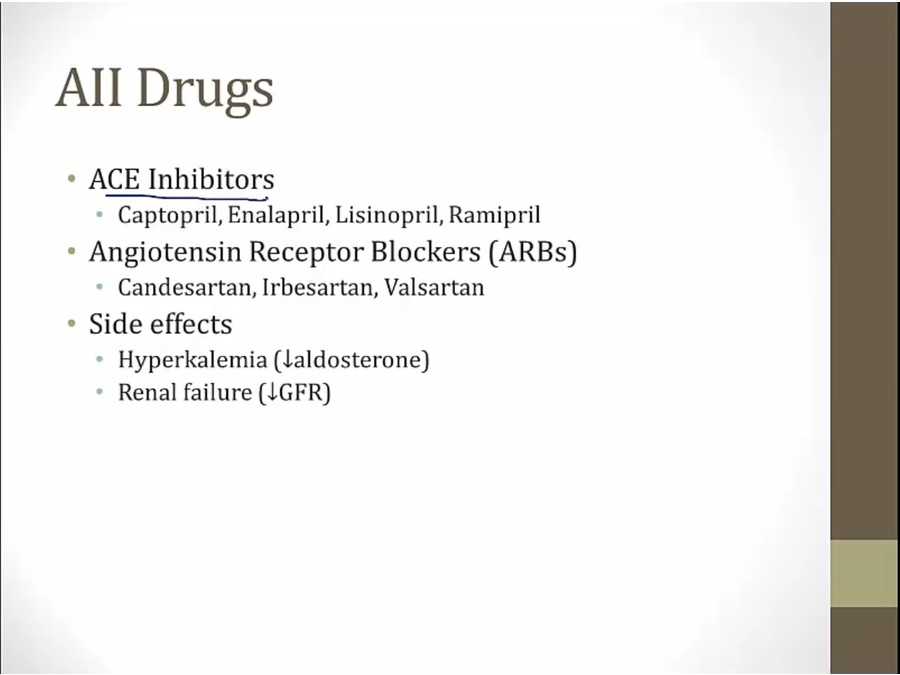
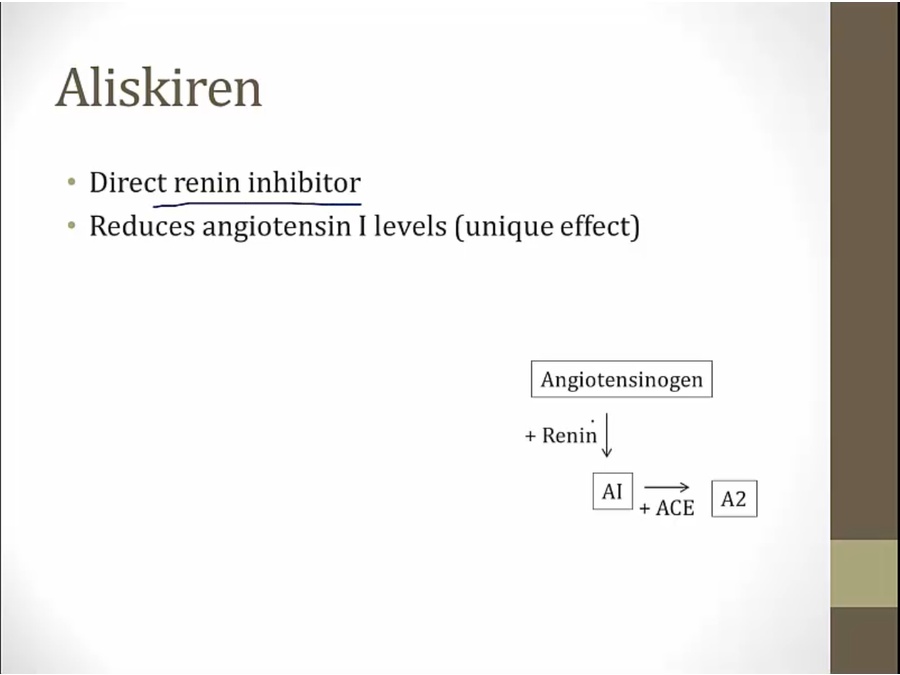
- inhibits renin, decrease AI production
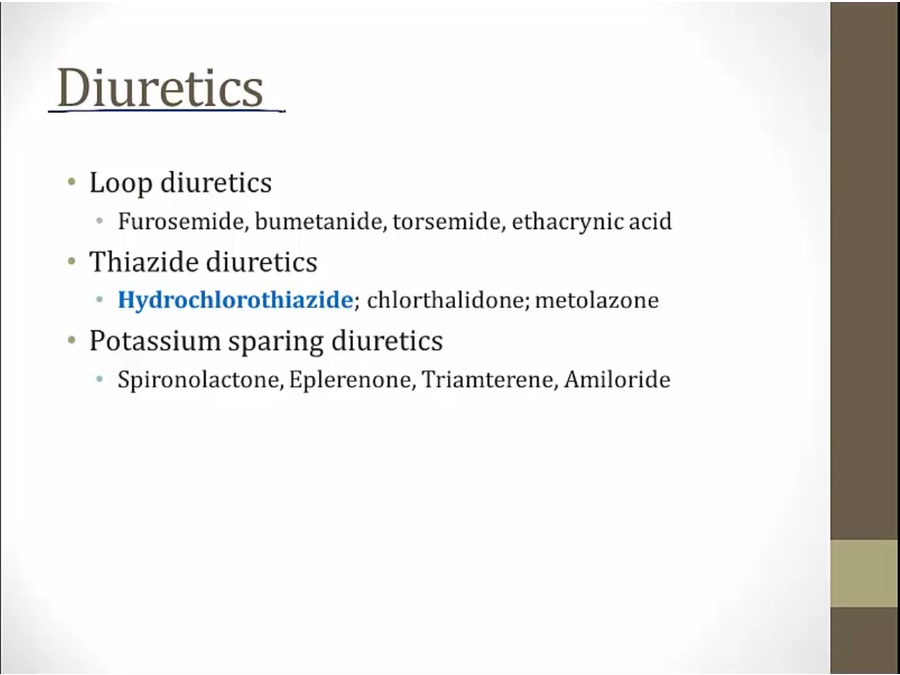
- HCTZ: used often for antihypertensives by inhibit Na absorption
Hydralazine
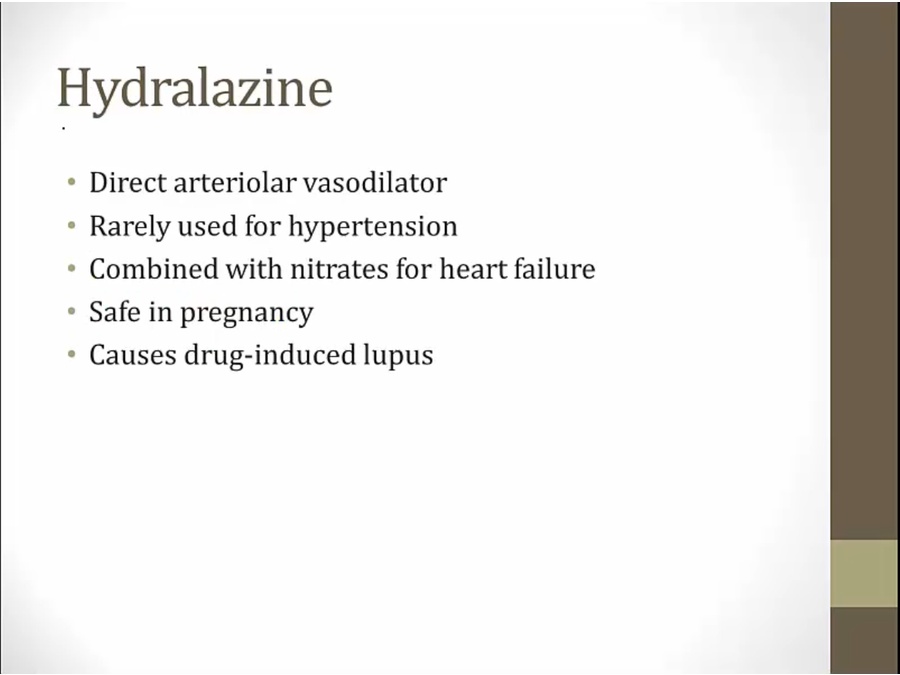
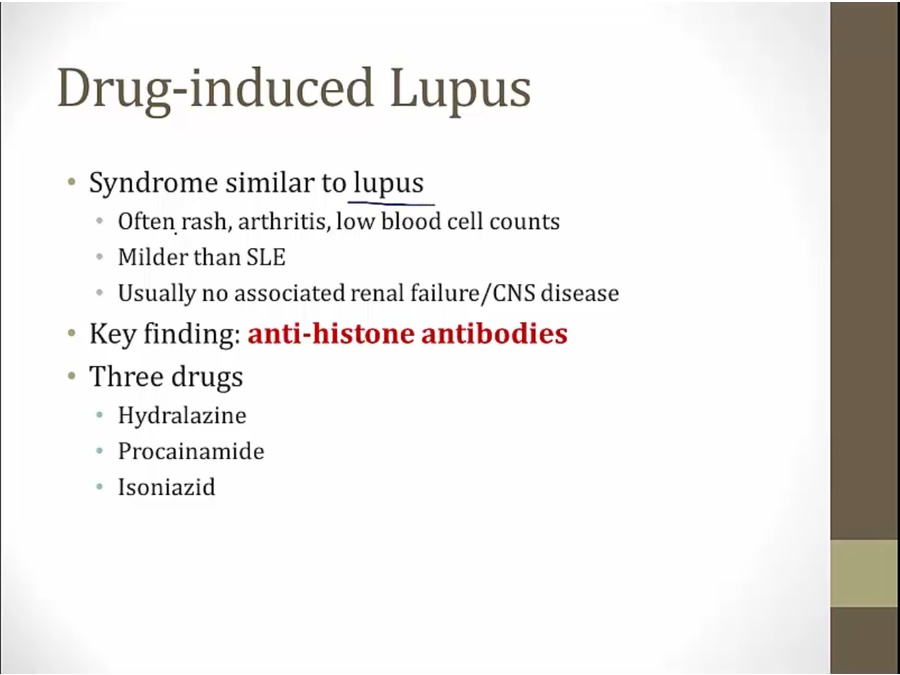
Hypertensive Emergency
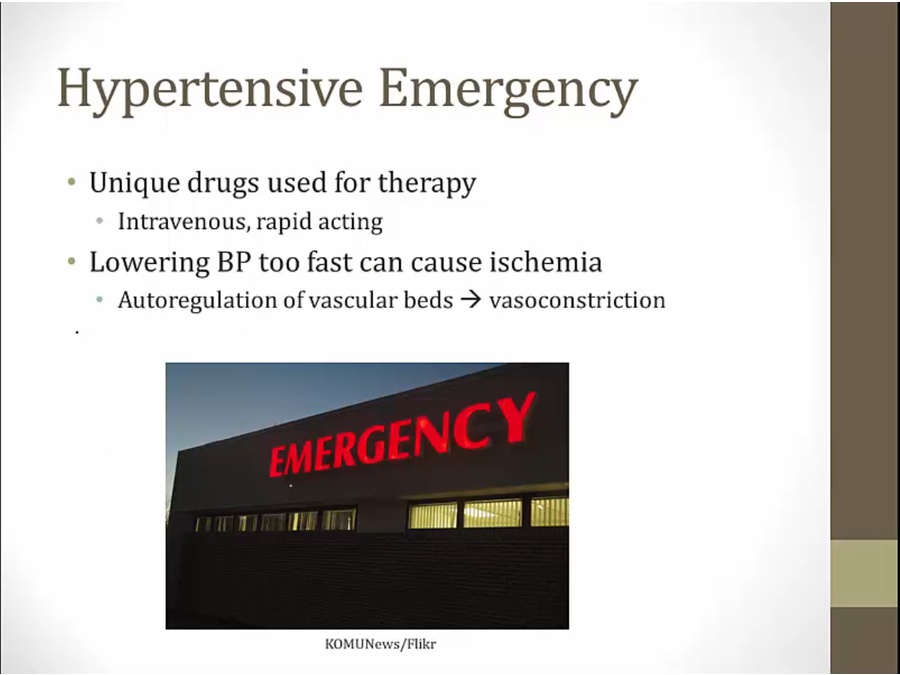
- rapid acting drugs that can be titrated carefully
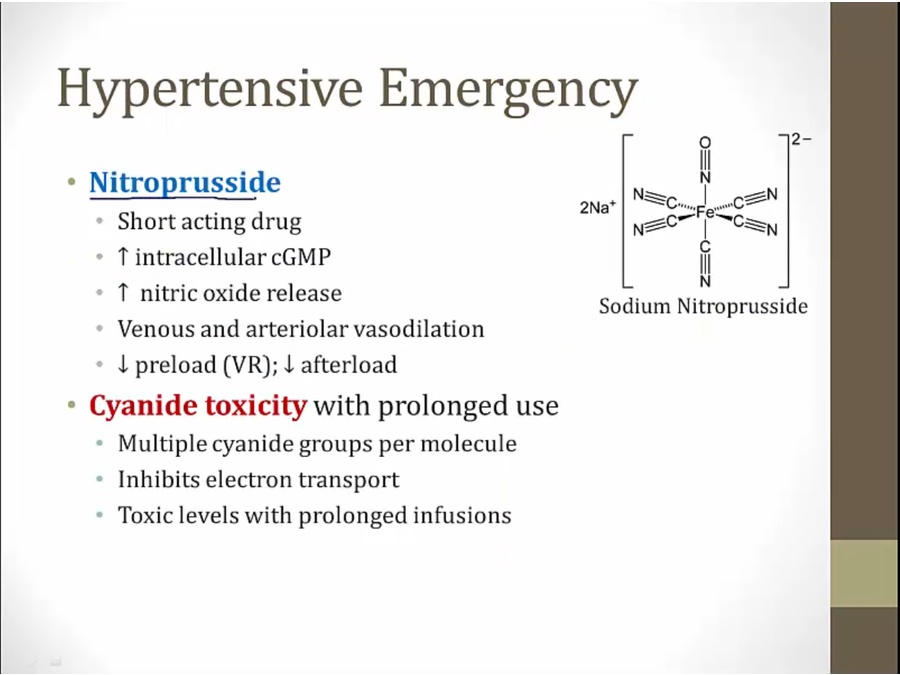
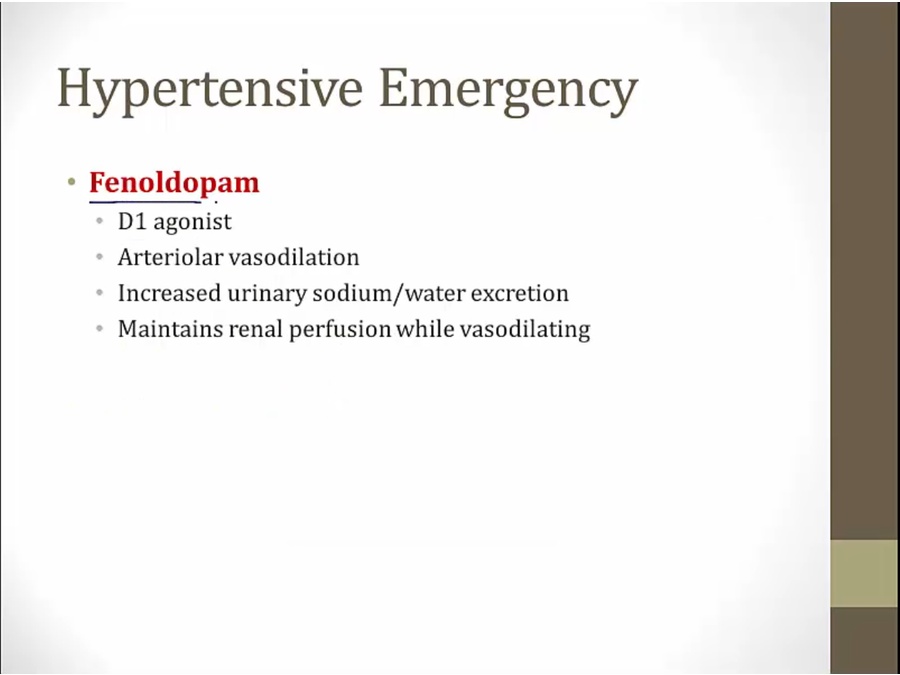
- increased renal perfusion
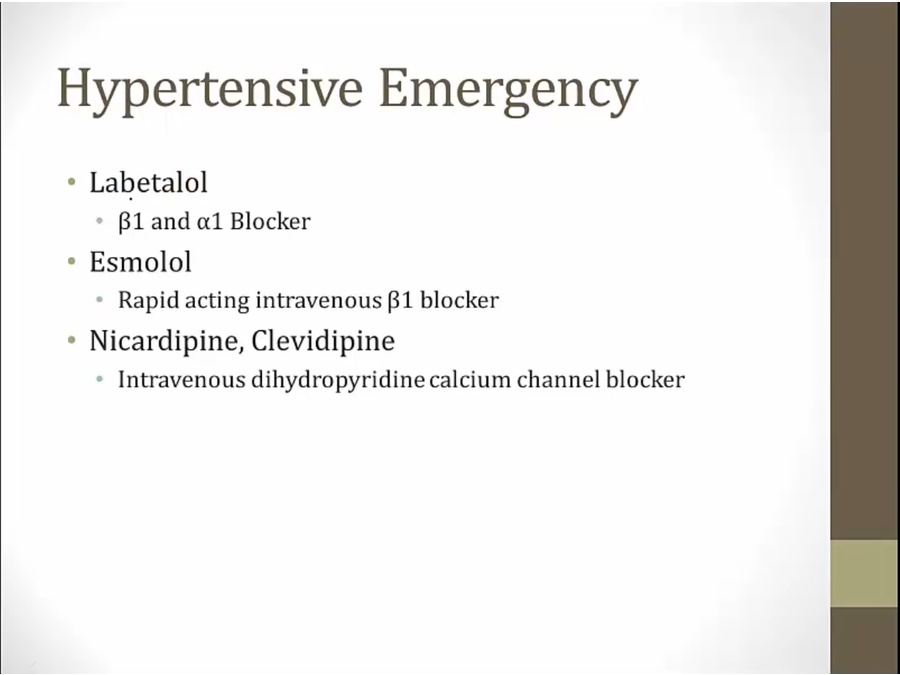
Antihypertensive SE
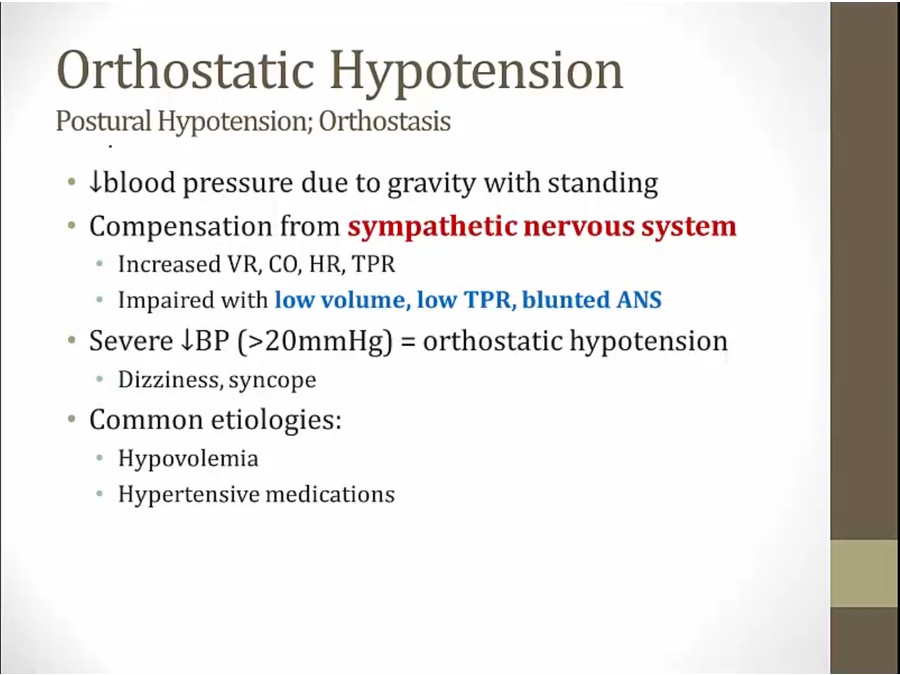
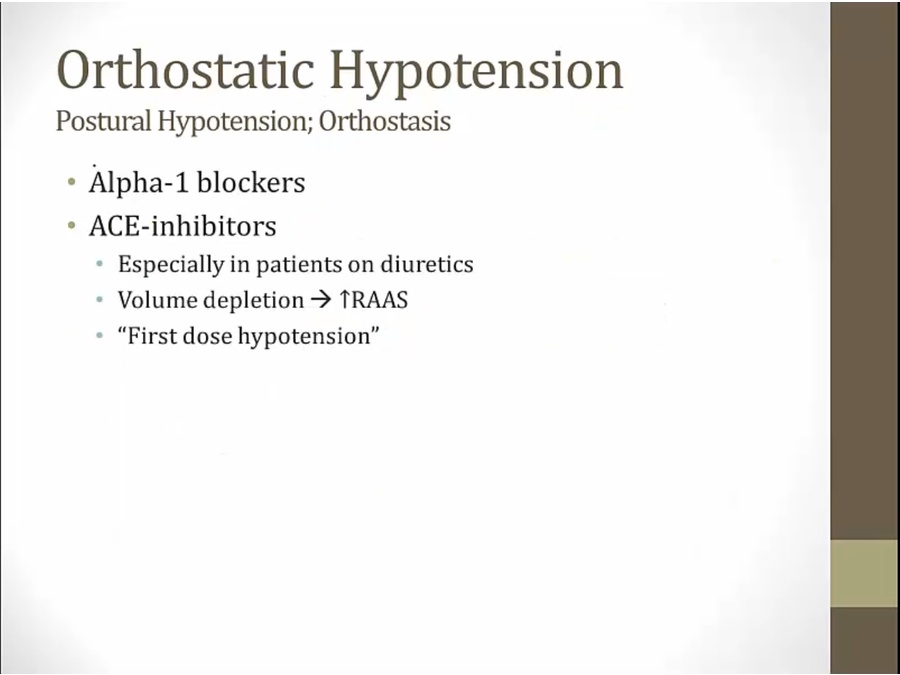
- diuretic pts: dependent on AII to maintain BP
- ACE I block AII
- occurs with first dose of ACE I given to diuretic pt
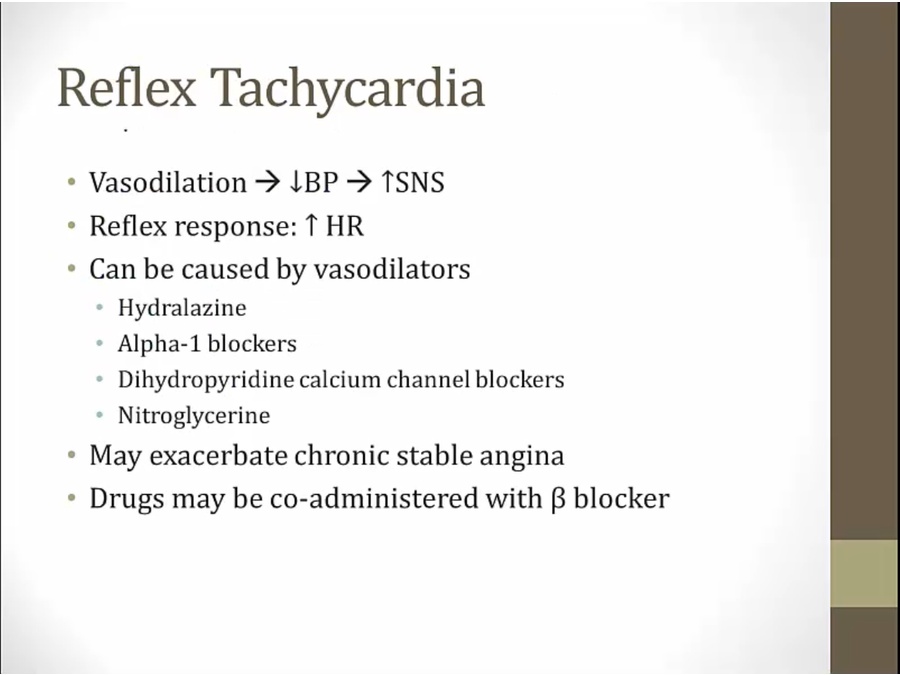
Choosing Antihypertensives
Links to this note
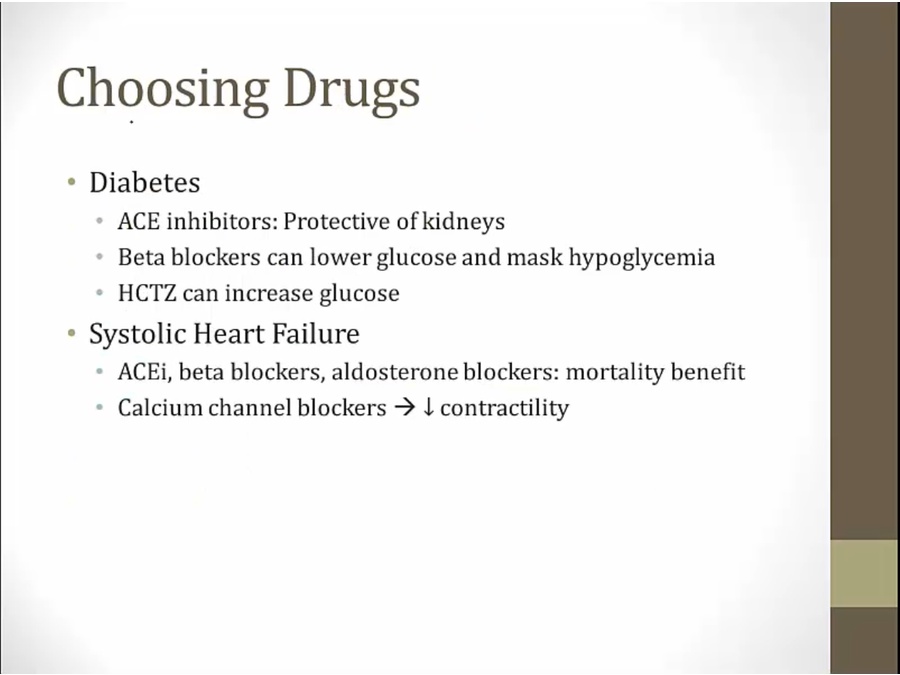
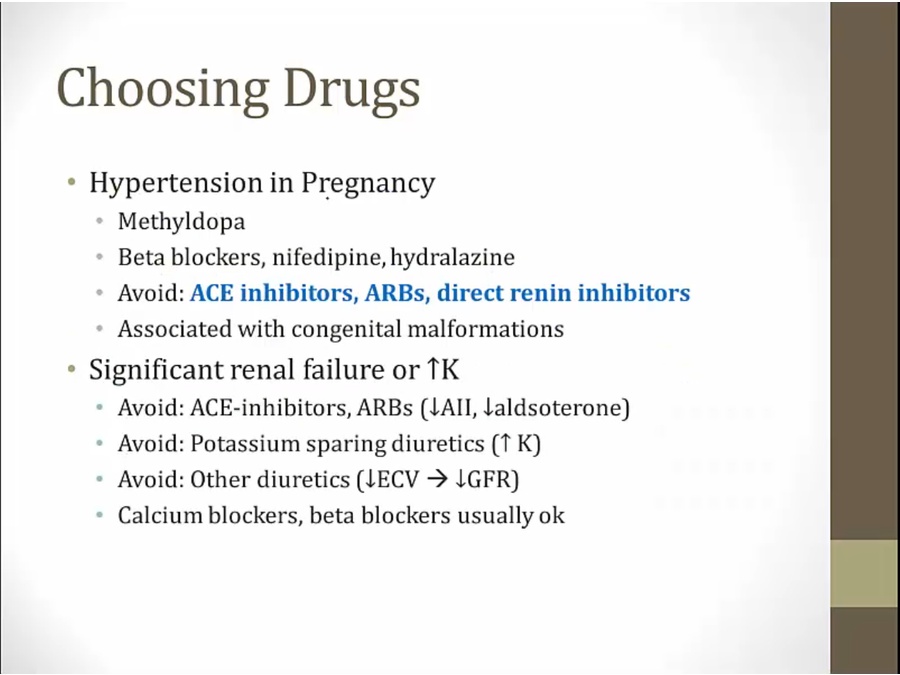
- RAAS blockade leads to malformation
- ACE I: decrease AII, renal failure
- aldosterone decrease: more K






































